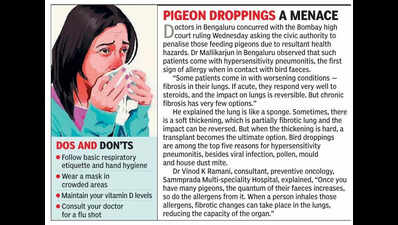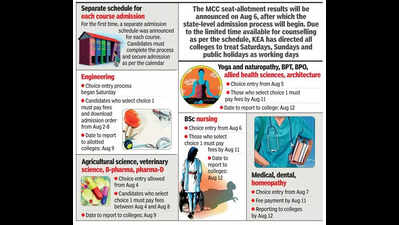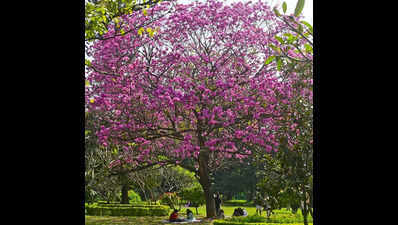Bengaluru doctors warn against seasonal surge in respiratory infections, bird droppings | Bengaluru News

Bengaluru: Doctors in the city are witnessing a seasonal surge in respiratory infections, with influenza strains and human metapneumovirus (hMPV) more prevalent than RSV, which dominated two years earlier. This has led doctors to urge vulnerable groups to get vaccinated and follow respiratory hygiene.RSV is typically more severe in young children, while hMPV causes milder symptoms but can still pose a risk to vulnerable groups. These respiratory infections typically manifest as fever, cough, and breathing difficulty.Talking about the reduced cases of RSV this year, Dr Satyanarayana Mysore, chairman HOD & consultant – pulmonology sleep medicine & lung transplant physician, said, “Maybe it is an evolutionary thing. Two years ago, influenza was low and RSV was slightly higher. This year is predominantly influenza due to seasonal changes.”Dr Mallikarjun, interventional pulmonologist & sleep medicine specialist, Hridhaan Speciality Clinics, JP Nagar, said, “These are common flu. We see them in both paediatric and adult cases. With a seasonal change and drop in temperatures, when one child gets infected, others also catch it.”The doctors emphasize these reported cases likely represent only a fraction of the actual infections in the city. “On a daily basis, we see three to four cases, but this is the tip of the iceberg. These patients are tested because they had comorbidities and low immunity,” said Dr Mysore.Dr Pretesh Kiran of St Johns Hospital said older people, especially those known to be immune-compromised — those with chronic lung disease, chronic kidney disease, and diabetes, are recommended flu shots largely. They have a higher chance of developing infection and more severe disease like pneumonia or bronchopneumonia, if not vaccinated. “It requires two weeks for the vaccination effect to set in antibodies.” Dos and Don’ts– Follow basic respiratory etiquette and hand hygiene– Wear a mask in crowded areas– Check your vitamin D levels– Consult your doctor for a flu shotBoxPigeon droppings a menaceFollowing the Bombay high court ruling Wednesday asking the civic authority to penalise those feeding pigeons, observing health hazards, doctors in Bengaluru concurred. In his practice, Dr Mallikarjun observed patients came in with hypersensitivity pneumonitis, the first sign of allergy when in contact with bird faeces.“Some patients come in with worsening conditions — fibrosis in their lungs. If acute, they respond very well to steroids, and the impact on lungs is reversible. But chronic fibrosis has very few options.”He explained the lung is like a sponge. Sometimes, there is a soft thickening, which is partially fibrotic lung and the impact can be reversed. But when the thickening is hard, a transplant becomes the ultimate option. Bird droppings are among the top five reasons for hypersensitivity pneumonitis, besides viral infection, pollen, mould, and house dust mite.Dr Vinod K Ramani, consultant, preventive oncology, Sammprada Multi-speciality Hospital, explained, “Once you have many pigeons, the quantum of that faeces increases, so do the allergens from it. When a person inhales those allergens, fibrotic changes can take place in the lungs, reducing the capacity of the organ.”






